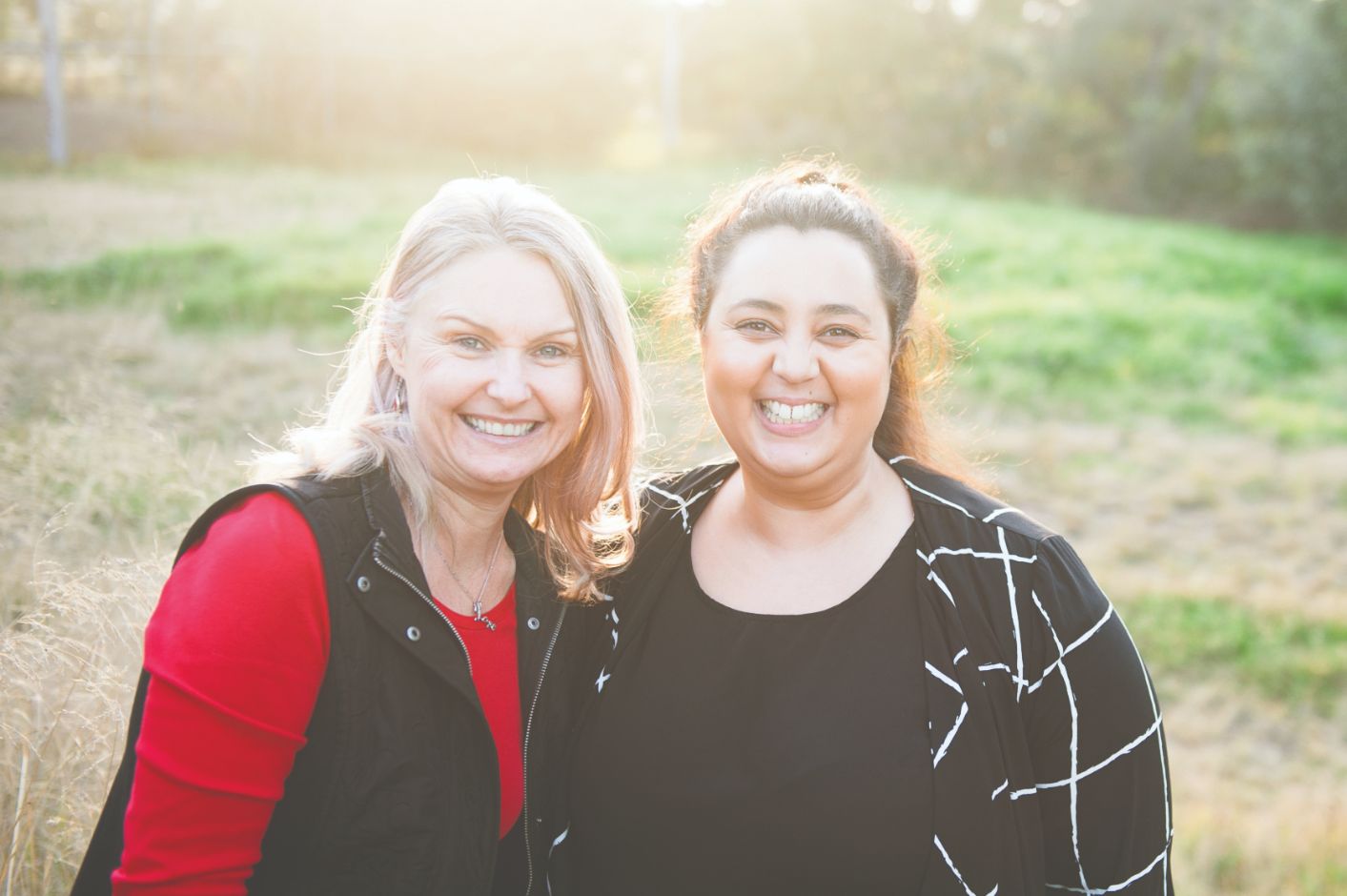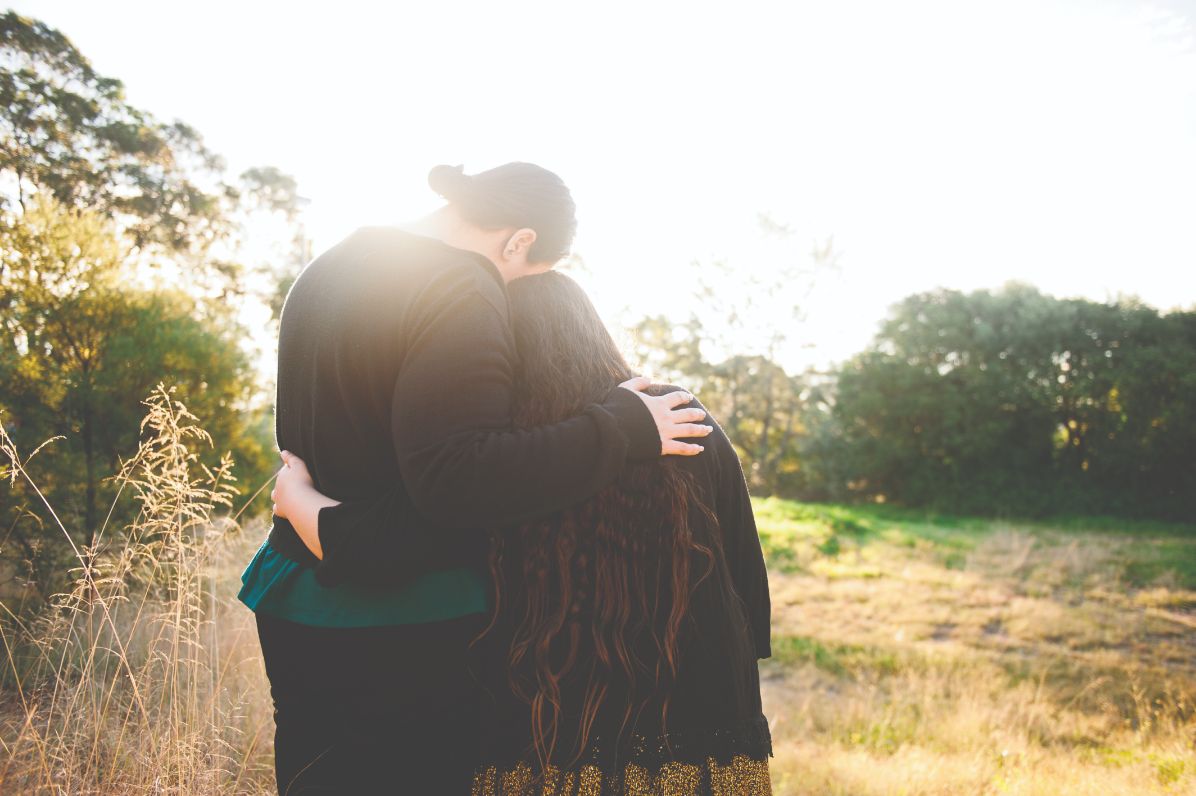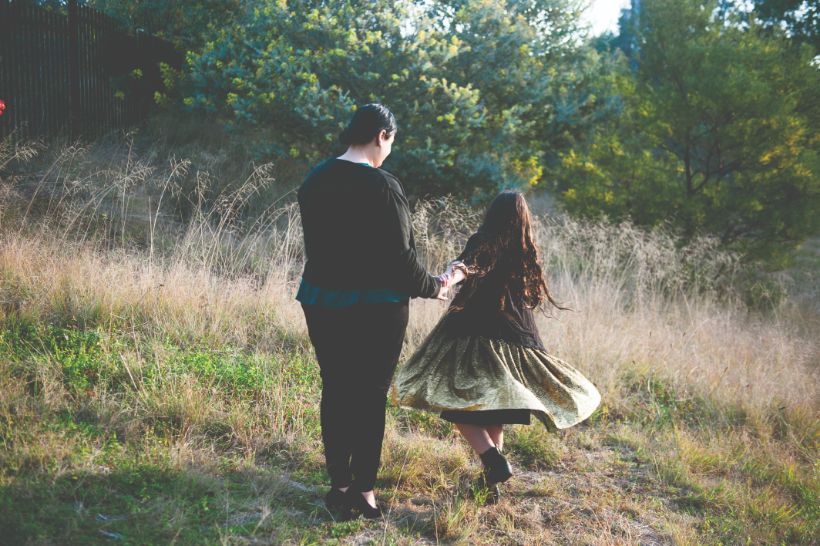Automatic language translation
Our website uses an automatic service to translate our content into different languages. These translations should be used as a guide only. See our Accessibility page for further information.

When I first met Marie, she told me she had grown up in a Muslim Australian– Lebanese family, rich in customs, responsibilities and expectations. As a child, her family had escaped domestic violence from her father. Then at the age of 14, she was married to an older man, and became the victim of further violence. They had a daughter, Nikki, and then Marie mustered all her courage and left, returning home to her mum, sisters and brother. But it wasn’t easy. She felt ashamed about the divorce and being a single mother. Any remaining confidence or independence she had was lost. She seemed broken, was softly spoken and avoided eye contact.
Nikki and Marie came to us from DCJ. Nikki was really struggling – she was only eight years old and was so worried about her mum. She had missed a lot of school and was telling her teacher some pretty terrible stuff about what was going on at home. Nikki and her mum lived with a large extended family of eight adults. She said her uncle was yelling, threatening and hitting her and her mum, as well as her aunts and her grandma.
Marie’s older brother Eli took on the patriarchal role of their family. It seemed to me that he used this powerful role to take away Marie’s freedom. Nikki was growing up being parented by so many adults and constantly afraid of being hurt. I was worried about them both.
The more I worked with Marie and Nikki, the more I saw I needed to respect and understand their culture as part of our work. Marie had so many experiences of hurt from men excused as ‘tradition’. She hated Eli’s violence and threats and constantly wrestled with how to separate them from his legitimate cultural role as the ‘head of the family’.
I worked with Marie, listening to her views, supporting her to slowly see the violence for what it was, and building her capacity to take the action needed to keep her and Nikki safe. Marie told me that Eli believed he was helping his family and wanted Nikki to grow up well-behaved and respectful. We talked a lot about Eli’s violence – about what happened before, during and after he hurt her. This helped her to see the deliberateness of his actions and understand the control he was using and the impact it had.
I was meeting with Michaela from DCJ regularly to keep her updated. I was a bit worried about what she would decide about Nikki, but I knew that she was listening to what Marie was telling me, and could see the support I was giving her and Nikki. I was confident Michaela was looking for the best solution for Nikki and like me, knew she should be with her mum.
I admit I was sceptical about Eli at first. It was hard not to be with all that I read, heard and assumed. I had to put all of this to one side so we could work with him effectively. Michaela helped me to work with Eli and I really admire that she found a way to make him responsible for the impact of his violence – this is never easy work.
I couldn’t see Nikki with anyone but her mum, and I couldn’t see Marie living without her family. We just needed to work together to find the right path for everyone.
When the reports about Nikki came through, I read Marie’s family history and could almost picture Nikki growing up to a similar fate. I felt drawn to her family’s story and wanted to find a way to give her a different life to her mum’s. Brighter Futures seemed ideal.
Tracey really supported Marie, but the more she worked with her, the more Marie told her, and the more worried we became. Marie was doing what she could to protect Nikki. She would try to keep Nikki quiet, and send her to her bedroom to keep Eli away. Marie would be as compliant as possible to avoid upsetting him and physically intervene between Nikki and Eli when she could. It was sad – she wasn’t responsible for Eli’s choices but she was doing everything in her power to protect her girl.
As things got worse for the family, I had to trust Tracey as my eyes and ears – to hear what Marie was saying and believe that Tracey would tell me if Marie was no longer able to keep herself and Nikki safe. Once we started to understand the full picture, we worked out how each of us could best use our different roles to come together with real purpose and teamwork to stop Eli using violence.
Marie had shared with me a lot about her family’s culture. To take the next steps, I consulted with our multicultural caseworkers, worked with our legal team, spoke with police, and connected with Nikki’s school to try and find the best way for Marie and Nikki to be safe while still staying connected to their family.
The cultural consultation was a game changer. We talked in depth about engagement, familial roles, birth order, divorce, parenting and violence. Marie’s cultural connection to her family meant leaving the home would be difficult and isolating. She would lose everything she had known – family, community, everyday life and purpose. We had to find a way to ‘build’ safety, not just ‘make her safe’, and help Marie see that violence and her culture can be separated. We talked and talked, all lost sleep about it and talked some more, before we brought all the family together to agree on a way forward.
Making Eli part of the plan was key, but also complicated. I knew that if we cut him out from the family it would exclude him from help and a chance to change. If we didn’t consider how to keep Eli connected, it would also undermine his culturally accepted role as the leader of the family and make it hard for the rest of them. We had to invite him to change, find ways to show respect to him and his culture and at the same time hold him accountable for the great deal of hurt he caused Nikki. It wasn’t easy for Eli to see that he needed to change his behaviour. I spoke to him about how he could be a supportive uncle and brother without using his fallback position of control. I struggled with this. I had to put to one side my own feelings about him as a perpetrator of violence and see that he still needed to have some role in the family. I had to think hard about how to help him change his behaviour.
Eli saw himself as his sisters’ protector. I used this as a hook to talk, to help him see that the bravest way to protect his sisters was for him to leave the family home. I knew we were getting somewhere when Eli agreed it was the best way forward too. This was a big deal for the whole family. We spoke about how he was still able to continue to be part of family life, meals and routines, while he worked on stopping his violence. It was a mark of how much he cared when he agreed to work on his violence with a counsellor.
It was also important for me to give him practical ways to keep looking after his family. When he would suggest needing to keep his family safe and wanting to help around the home, I was able to give him practical ways for doing so without living there, like arranging new locks for the windows and looking after the garden.
With Eli out of the house, we worked hard with Marie to create a space for her to grow and rebuild her sense of self. Marie had never parented Nikki without Eli getting involved. She loved Nikki but needed support to build her confidence as her mum.
I first noticed the change in the sisters. At the start they were sceptical of us. Probably like Marie, they’d grown to respond and resist Eli’s violence and control in their own ways. Having space and freedom allowed them to bond as part of the network of people responsible for Nikki’s safety. With their increasing encouragement and support, and our gentle suggestions about what Nikki needed from her mum to start to recover, Marie’s confidence slowly grew and she was able to rebuild her life and reclaim her role as a parent.
I look at this family now and they’re like different people. Marie has a job. She stands tall, and looks me in the eye. Her confidence grows every day. She’s parenting on her own for the first time in nine years and she’s doing marvellously well. Nikki smiles all the time and loves her mum. Eli is still in their life. He has done a lot of positive work on himself and his behaviour. Full credit to him. Nikki says she’s got a ‘happy uncle’ now.
When I think back about how we helped Marie, it wasn’t a fluke that it all came together. It worked because we could trust in the partnerships we’ve built with our non-government organisations. These relationships have paid off. Nikki is happier and safer because of it.
Having freedom – that’s the biggest change for me. For Nikki, it’s having me as her mum. That’s what I’m most proud of. That I was able to do this, protect her and make the right decisions for her. I was scared but with Tracey’s help I felt strong enough to move forward.
It was hard – really hard at times – and pretty emotional. I didn’t want our family split up, but I wanted Nikki to be safe. There were times when I was really worried about how it would turn out.
My head was pounding when we sat down to create the family plan. I was hot inside, and felt sick, frozen and scared. It was hard being in the middle of this with my family, feeling I was the cause of all that was going on. I just had to take a big deep breath and trust that Tracey and Michaela were bringing all the right people together.
The best outcome is that I’ve got Nikki, and I feel confident to be her mum. She’s happier, she’s affectionate and she laughs so much. She respects me as her mum and we’ve still got our family. I didn’t have to choose. Eli is still her uncle, but he doesn’t hurt her now. He’s not controlling anymore. Now I feel sure that Nikki and my sisters will be able to have a life that I didn’t. We all have freedom now.


Deputy Secretary, Commissioning, NSW Department of Family and Community Services
In the NSW Practice Framework the words in the practitioner mandate – ‘We work hard to give dignity, partner with parents, families and communities and use collective wisdom, skills and courage to keep children safe. Family strengths are valued, resilience is nurtured, dignity is upheld and enduring connections are formed’ could have been written precisely about this family and the work that we all did together. Valuing the strength of the family was absolutely critical as was the courage to name domestic and family violence as a risk to Nikki, Marie and her sisters. How easy it would have been for Michaela to judge Marie and expect her to be responsible for her brother’s violence and the impact on her daughter.
Good on Michaela and her colleague Tracey for being clear-sighted to understand that Nikki, Marie and her sisters needed their support and guidance. When I read about the meeting with Eli that called out how his violence was not helping his family but hurting them in every way I held my breath. Eli got it – his violence and control was not helping but was placing them all in danger. Well done Michaela and Tracey for being brave in calling out what was going on but compassionate and wise to see the strength that was right there in the middle of all that.
16 May 2023